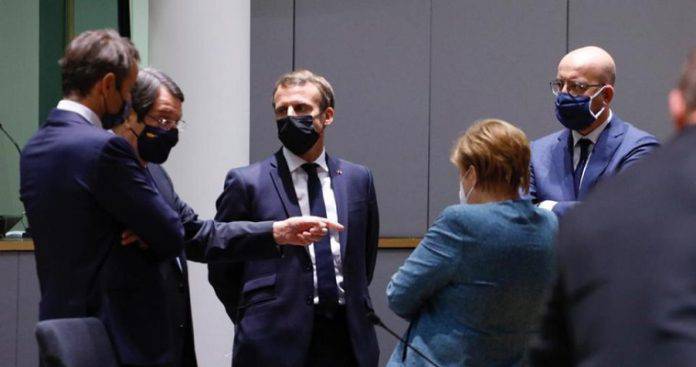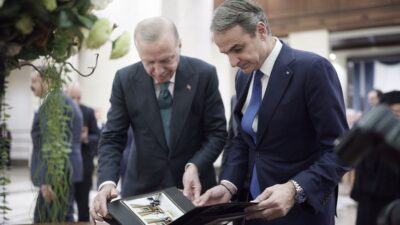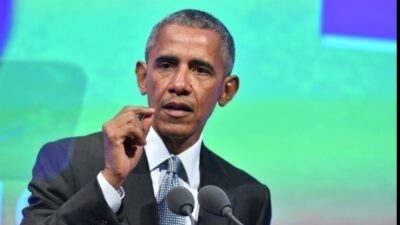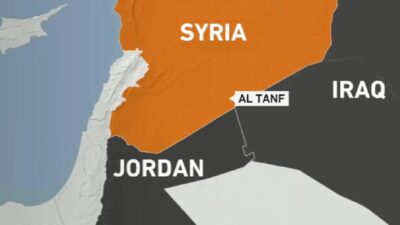Vaggelis Sarakinos: Why Mitsotakis must, here and now, call Brussels to account
16/10/2020
With Erdogan continuing the provocations at every level, Mitsotakis called for Turkish aggression to be on the agenda of the ongoing Summit in Brussels. The request was accepted. At the same time in Athens, Nikos Dendias informed the parties, while there is no lack of confrontation between the opposition and the government for the handling of the situation so far.
The Prime Minister stated that he had asked the President of the European Council to put the issue of Turkish provocations on the agenda of the Summit and the request was accepted by Charles Michel. The relevant discussion will take place on Friday, where references will be made in the context of the exchange of views on all current issues. The difference is that now the Turkish provocations are being tabled in this European Council as well. The question remains, of course, what will happen to the sanctions.
Kyriakos Mitsotakis informed his colleagues in the EPP about this, emphasizing that Turkey has shown that it “remains consistent in its provocative and aggressive behavior”. He even stressed that “the same consistency must be shown by the EU in the implementation of the decisions it has taken so that this behavior has the appropriate consequences.”
Will Mitsotakis put pressure?
With this report, the Prime Minister took a step towards immediate sanctions, although he insists on keeping the issue of dialogue open, always on the basis of what has already been agreed. That is, without threats and aggressive actions and only for the one and only difference: the determination of the continental shelf and the EEZ. In recent days, however, Athens has begun to realize that the “threat of sanctions” is not as effective and that it needs to be enforced.
This was evident in the discussions that the Prime Minister and the Foreign Minister had with Maas, where the Greek side raised the issue of a timetable. In other words, he pointed out the final character of the December Summit, noting that this does not mean that decisions must necessarily be taken then.
For its part, Berlin, which did not want to even hear the phrase “sanctions on Turkey” at the previous summit and did everything it could to block them (along with other Member States) insisted that there was a set timetable and “guideline for the action of all partners “. At the same time, Germany insisted on the need for “immediate dialogue”, although it acknowledged the frustration, even the anger, that exists in Athens and Nicosia, due to the Turkish behavior.
Germany also seeks no sanctions against Turkey at this Summit. This coincided with the statements of Maas and other German officials, but also the leaks from the German chancellery that no request was made for sanctions against Turkey. This dimension provoked controversy in Athens, between the government and the opposition.
Can anything change in a week?
Today, Maas again insisted on postponing the imposition of sanctions on Ankara. “We have to wait and see if there is progress in a week, and then we will see what stance should be adopted by the EU,” the German foreign minister said when asked. Now only Maas and Merkel know what they expect to see in a week. However, if they expect Erdogan to invoke new mechanical damage to the research vessels he illegally sent to the Eastern Mediterranean, we have probably overestimated the role they can play at the helm of the EU.
Maas reiterated that “there are two times when no talks took place, which were expected and we do not know when they will take place” and called Turkey’s decision to send a research vessel to the Mediterranean, again, “unacceptable”. But that says nothing. The one-week deadline given to Turkey by Berlin is not an “ultimatum”, as some say, but more “buying time” on behalf of Turkey.
The position of the French Foreign Minister was a little harsher towards Ankara. Lendrian, after stressing that it is clear that Turkey is provoking, said that the ball is now in Ankara’s court. He added, however, that the EU is ready to change the balance of power if Turkey does not return to dialogue.
However, the French Foreign Minister remained on the point of the threat of sanctions and did not move to the necessity of imposing them. After all, this is not the first time that Paris appears initially at odds with Berlin, before the convening of European Institutions and Bodies. In the end, of course, he always takes a step towards Germany.
Sanctions are a one-way street
The statements of Maas and Lendrian, which are the prelude to the stance that Merkel and Macron will take at the Summit, respectively, were made in the joint interview with the Polish Foreign Minister. Poland has threatened to veto the EU economic recovery plan and the European budget if Brussels continues to push against Warsaw’s policy of restricting the rights of the LGBTQ community (!). “We will not allow ourselves to be intimidated by money,” said Polish Vice President Kaczynski.
Kaczynski’s position shows the attitude that Athens and Nicosia must take. Especially when it is not the rights of the LGBTQ community that are at stake (otherwise highly respected), but the violation of sovereign rights that involve the risk of national mutilation. The one-week deadline that cultivates Berlin as an “alternative” is something that Athens should not accept for any reason. Unless it becomes known today, what will happen then, if Erdogan continues to provoke.
Mitsotakis is now forced by developments to obtain sanctions against Turkey from this Summit. Commonly in this European Council, it must take care, not just to discuss the Turkish provocation on the agenda, but to “bring it to account”. In other words, there should be a decision to impose sanctions and not just words about “full solidarity” and “full support”.





